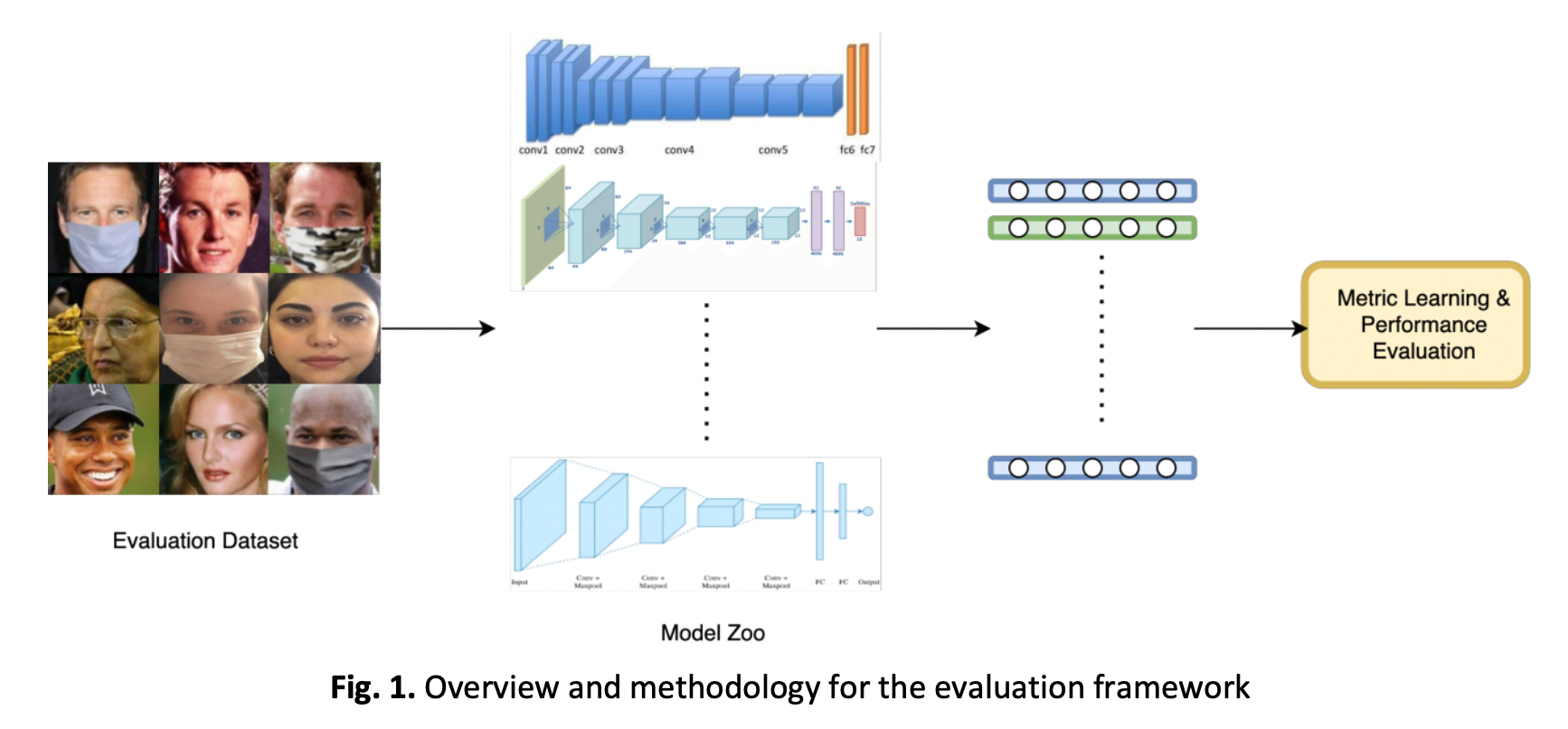Performance Evaluation of State-of-The-Art 2D Face Recognition Algorithms on Real and Synthetic Masked Face Datasets
DOI:
https://doi.org/10.37934/araset.30.2.225242Keywords:
Facemasks, Data Sets, Face Recognition, Convolutional Neural NetworksAbstract
Face recognition systems based on Convolutional neural networks have recorded unprecedented performance for multiple benchmark face datasets. Due to the Covid-19 outbreak, people are now compelled to wear face masks to reduce the virus's transmissibility. Recent research shows that when given the masked face recognition scenario, which imposes up to 70% occlusion of the face area, the performance of the FR algorithms degrades by a significant margin. This paper presents an experimental evaluation of a subset of the MFD-Kaggle and Masked-LFW (MLFW) datasets to explore the effects of face mask occlusion against implementing seven state-of-the-art FR models. Experiments on MFD-Kaggle show that the accuracy of the best-performing model, VGGFace degraded by almost 40%, from 82.1% (unmasked) to 40.4% (masked). On a larger-scale dataset MLFW, the impact of mask-wearing on FR models was also up to 50%. We trained and evaluated a proposed Mask Face Recognition (MFR) model whose performance is much better than the SOTA algorithms. The SOTA algorithms studied are unusable in the presence of face masks, and MFR performance is slightly degraded without face masks. This show that more robust FR models are required for real masked face applications while having a large-scale masked face dataset.
Downloads





























